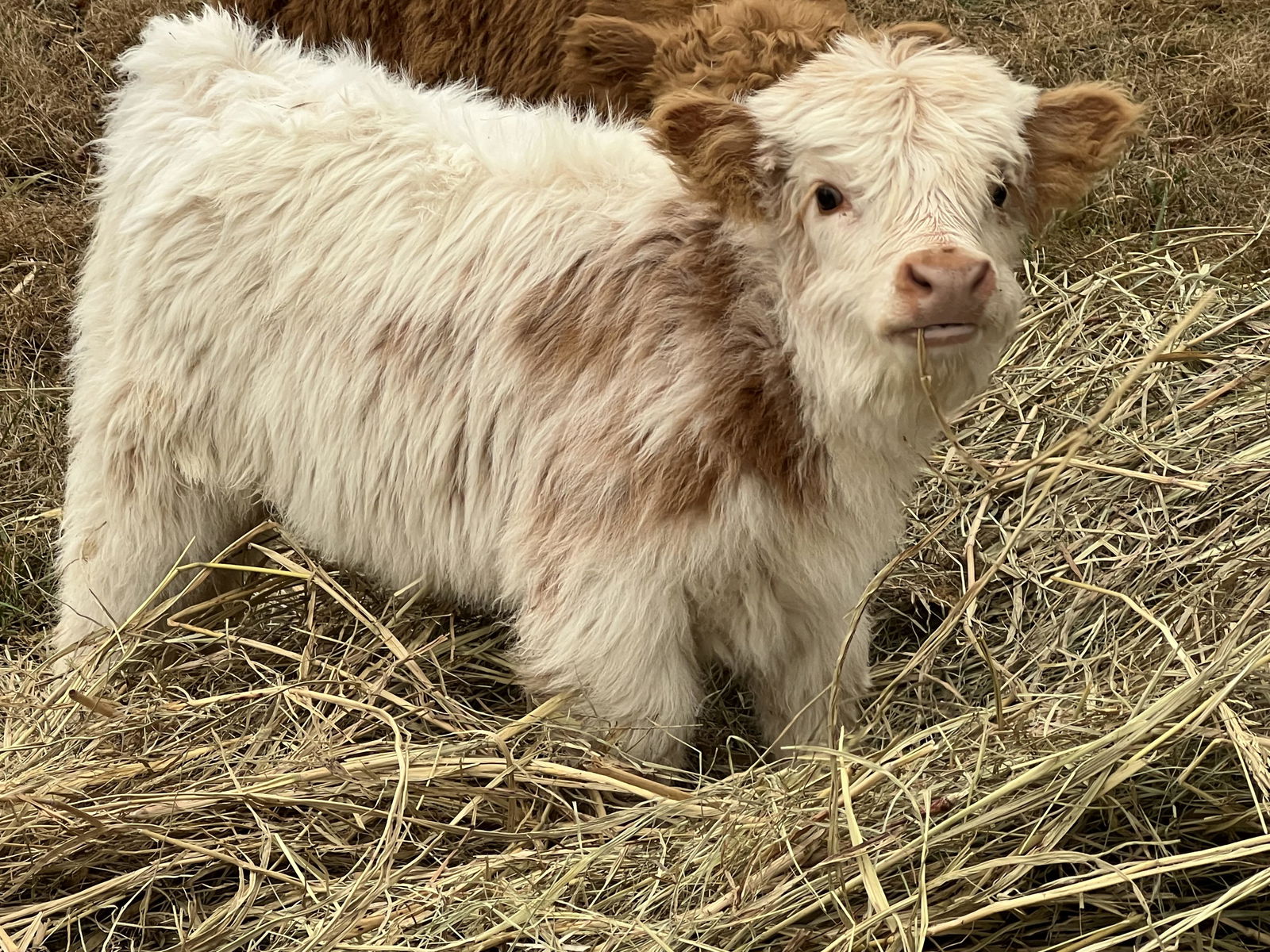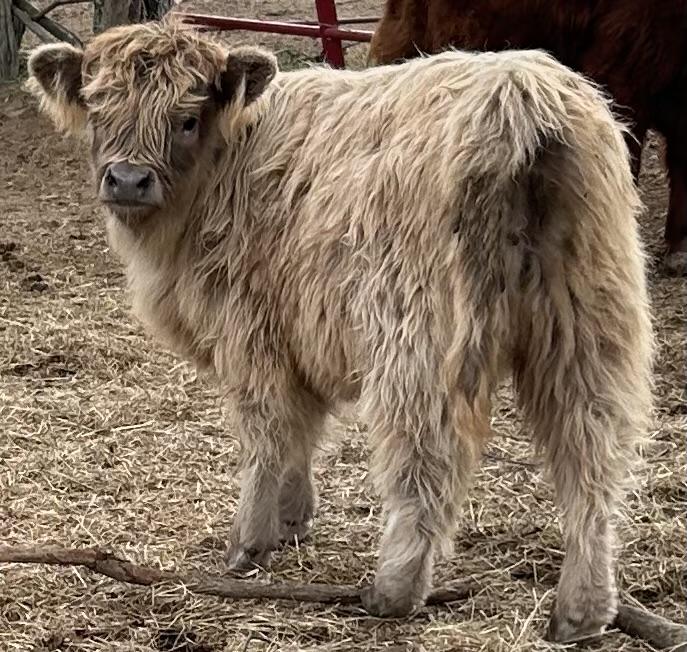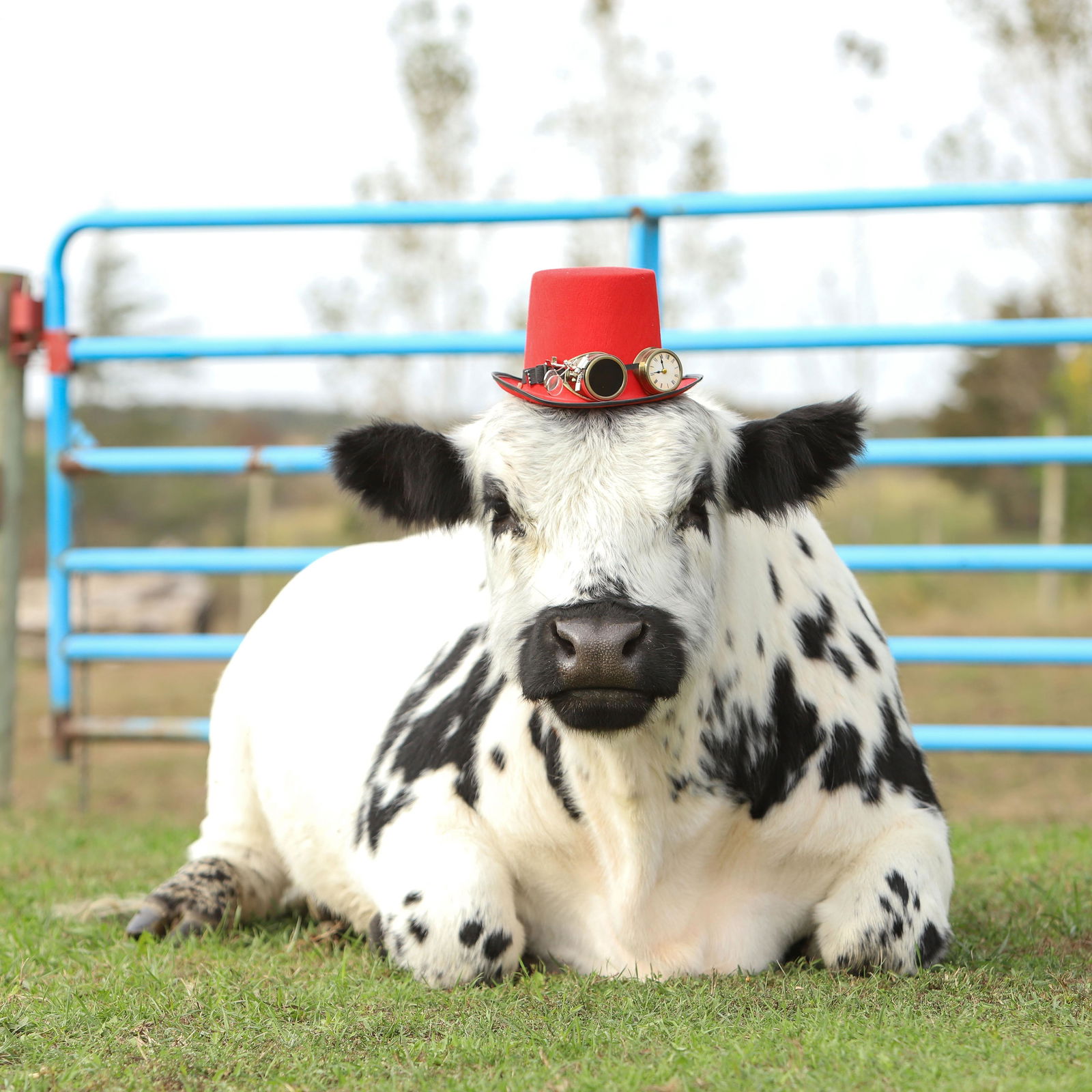
Where to Buy Guinea Pigs: Complete Guide (2025)
Author: Elliott Garber, DVM
You’ve decided to bring a guinea pig into your life. Congratulations!
These gentle, squeaking bundles of personality make wonderful companions with their quirky vocalizations and endearing temperaments. But as you start researching, you quickly hit a wall of questions: Where should you actually get your guinea pig? Pet store? Shelter? Breeder? That person on Craigslist?
And does it really matter?
Here’s the truth: it matters more than you might think. The source of your guinea pig directly affects their health, temperament, and even how many years you’ll get to spend together. Guinea pigs typically live 6 to 8 years (and with excellent care, some make it to a full decade).
That’s a significant commitment, and it all starts with choosing the right source. Make a hasty decision, and you might end up with a sick pet, unexpected vet bills, or contributing to the very problem that led nearly 600 guinea pigs to be surrendered to New York City shelters in 2022 alone.
In 2025, you have more options than ever before. The landscape has evolved beyond the traditional pet store run. Now you can adopt from specialized rescues, connect with reputable breeders through enthusiast clubs, explore private rehoming situations, or use modern online marketplaces designed specifically for ethical breeding and pet transactions. Each path has distinct advantages and potential pitfalls.
This comprehensive guide will walk you through all five main avenues for finding your new guinea pig: pet stores, animal shelters and rescues, reputable breeders, private rehoming opportunities, and emerging online platforms. For each option, you’ll get current 2025 pricing data, a realistic assessment of pros and cons, and practical tips to ensure you’re making an informed decision. By the end, you’ll know exactly which route makes sense for your situation, and you’ll be ready to welcome a healthy, happy guinea pig into your home.

Buying Guinea Pigs from Pet Stores
When most people think about getting a guinea pig, the local pet store is the first place that comes to mind. Walk into a Petco or PetSmart, browse the small animal section, and you can often walk out with a young guinea pig the same day. Major chain stores and many independent pet shops maintain a regular stock of juvenile cavies, typically offering common breeds like American or Abyssinian without specialized pedigrees. For someone who wants immediate gratification and doesn’t want to navigate adoption applications or breeder waitlists, pet stores offer undeniable convenience.
But convenience comes with compromise. Let’s talk about what you’re actually getting (and what you might be giving up).
The Pricing Reality
In 2025, expect to pay around $33 to $50 per guinea pig at most pet stores, with an average around $40-$50 depending on location and availability. Some stores charge more for rarer coat colors or specific breeds, but that’s the general range.
And here’s something important to know right away: pet store prices tend to run higher than what you’d pay at other sources. The same guinea pig might cost you $30 at a local rescue (sometimes even less). So if budget is a concern, keep reading.
The store staff can usually provide basic information like the animal’s approximate age and gender, but beyond that, details get murky. Which brings us to the real concern with pet stores.
The Sourcing Problem
The uncomfortable truth is that most large pet chains source their small animals from high-volume commercial breeders (operations focused on quantity over quality). Pet stores themselves often have no way of knowing the full history or health background of the guinea pigs they sell.
You won’t get to meet the parents. You won’t see where the animal was raised. You’re essentially buying blind.
The journey from breeder to your home creates additional problems. Guinea pigs travel from breeding facility to distributor to store (a stressful gauntlet that can predispose them to respiratory infections and other illnesses).
By the time that adorable little cavy reaches the pet shop display, it might already be in suboptimal health. And if males and females were mistakenly housed together during transport or at the store? You might be bringing home a pregnant guinea pig without knowing it.
Then there’s the welfare angle. Guinea pigs are highly social herd animals that thrive in groups and need space to move. But large-scale commercial breeders often house them in very small, isolated enclosures to maximize production (a setup that’s not ideal for the mental or physical health of the animals).
A young guinea pig raised in such conditions could develop hidden health or behavioral issues that only surface after you’ve gotten attached.
What Pet Stores Get Right
To be fair, many large pet store chains do offer limited health guarantees. Pet store health guarantees typically range from 14-30 days and allow returns or exchanges within the guarantee period if serious illness appears, though specific coverage for vet reimbursement varies by store.
That’s something. It’s not a substitute for a healthy start in life, and returning a pet you’ve already bonded with is heartbreaking. But it’s better than nothing. Independent local shops typically don’t offer any such protection, so always ask about their policy before buying.

How to Navigate Pet Stores Successfully
If you do decide to go the pet store route, do your homework first. Research the store’s reputation. Are their animal enclosures clean and well-maintained? Do they properly separate males and females to prevent accidental breeding? For guidance on identifying quality sources, resources from cavy enthusiast organizations can be helpful.
Before you buy, spend real time observing the guinea pig’s behavior and appearance. A healthy cavy should be active and alert, with clear bright eyes, no nasal discharge or sneezing, a full coat free of bald patches, and a healthy appetite for food and water. Don’t let excitement override your judgment. If you notice lethargy, dirty living conditions, or staff who seem annoyed by your questions, walk away. Your instincts are usually right.
The Legislative Context
Some regions are actively moving away from pet store sales. New York City banned the sale of guinea pigs in pet shops in 2023 after animal welfare officials documented shelters overwhelmed with unwanted guinea pigs (many of them impulse buys from pet stores that families later couldn’t or wouldn’t care for). In areas with such bans, pet stores instead partner with local rescues to facilitate adoptions. Check your local animal welfare regulations to see what applies in your area.
The Bottom Line on Pet Stores
Pros:
- Immediate availability (walk in, walk out with a guinea pig)
- Young animals that adapt easily to new homes
- Basic care information and supplies available in one place
- Some chains offer short-term health guarantees
Cons:
- Unknown background and breeding conditions
- Higher prices than shelters or direct rehoming
- Transport stress and potential health problems
- May indirectly support mass breeding operations
- Animals may lack early socialization
Pet stores work best for people who value convenience above all else and don’t mind paying a premium. But if you’re willing to invest just a bit more time in your search, the next option often delivers better value (in every sense of the word).
Adopting Guinea Pigs from Shelters and Rescues
Here’s something many prospective guinea pig owners don’t realize: your local animal shelter probably has guinea pigs available for adoption right now. Not just dogs and cats (actual guinea pigs).
In fact, with the surge of guinea pig surrenders in recent years, many city shelters have more cavies than they know what to do with.
Beyond municipal shelters, you’ll find specialized small-animal rescues and dedicated “cavy rescues” operating across many regions. These organizations exist for one purpose: to rehome guinea pigs and other small pets who need second chances. For most first-time owners, adoption through these channels represents the sweet spot of cost, health, and ethics.
How to Find Adoptable Guinea Pigs
Start by checking your city or county animal shelter’s website, or simply call and ask if they currently have small animals available. You’ll often be pleasantly surprised. For broader searching, websites like Petfinder.com and Adopt-a-Pet.com offer guinea pig adoption listings with location-based search functionality, pulling listings from shelters and rescue groups nationwide.
The variety can be remarkable. You might find young guinea pigs, bonded pairs who need to stay together, or even senior cavies looking for a comfortable retirement home. Sometimes rescues receive entire groups. In Los Angeles in 2025, a single hoarding situation resulted in more than 400 guinea pigs being rescued and made available for adoption.
While specific breeds might require patience, many varieties (Abyssinians, Peruvians, even hairless Skinny Pigs) do turn up in rescue systems.
The Adoption Process Demystified
Adopting typically involves filling out an application and possibly participating in a brief interview or home check. This isn’t meant to be intimidating. Shelters simply want to ensure they’re matching pets with responsible, prepared homes.
You might be asked about your cage setup (shelters want to know you have adequate space; the absolute minimum is 7.5 square feet for two guinea pigs, though 10.5 square feet is strongly recommended for best health and wellbeing), your understanding of guinea pig care, and your household situation.
Don’t let the vetting process deter you. It’s straightforward and ultimately serves both you and the animal. Some organizations might request a photo of your cage setup. Others conduct home visits. Most just want to have a conversation to make sure you’re ready.
The Cost Advantage
Here’s where adoption really shines: adoption fees for guinea pigs typically range from just $20 to $50 per animal. Compare that to $33-$50 at pet stores or potentially hundreds from a breeder.
| Source | Single Guinea Pig | Bonded Pair | Notes |
|---|---|---|---|
| Southern California rescue | $35 | $65 | Tax-deductible donation fee |
| General rescue average | $30 | $50 | Often includes water bottles, hideouts |
| Special adoption events | Reduced or waived | Reduced or waived | “Clear the Shelters” promotions |
These modest fees help cover the cost of housing and caring for the animals while they wait for homes. They’re not profit-generating (they’re covering basics).

Health Vetting and Behavioral Insights
One of the biggest advantages of rescue adoption is that most organizations provide basic vet care and health checks before making animals available. Shelter guinea pigs typically receive exams, and any obvious health issues are treated before adoption. Common problems like skin mites or fungal infections (such as ringworm) are addressed before the animal goes home with you.
Reputable rescues won’t adopt out a currently sick animal without full disclosure and a clear treatment plan. You can usually get a health report or discuss the animal’s medical history with shelter staff or the foster parent. If a guinea pig has special needs or a chronic condition, they’ll tell you exactly how to manage it. This transparency is invaluable.
Beyond physical health, guinea pigs in foster care or shelters often receive daily handling and socialization. They may arrive at your home already comfortable with being held and genuinely friendly. Rescue volunteers can tell you about each pig’s personality (whether they’re shy or outgoing, cuddly or independent, food-motivated or curious). This insider knowledge helps you choose a pet whose temperament matches your household.
The Companionship Philosophy
Shelters and rescues are almost universally strong advocates of keeping guinea pigs in pairs or groups. This isn’t arbitrary. Guinea pigs are highly social creatures, and loneliness can genuinely harm their well-being.
Some rescues have explicit policies: they’ll only adopt a single guinea pig to someone who already owns one. Otherwise, they require you to take a pair.
This isn’t the rescue being difficult. It’s them prioritizing animal welfare. Being kept alone can negatively affect a guinea pig’s health and happiness. Adopting a bonded pair means they keep each other company, play together, and communicate in ways that no amount of human attention can replicate. Many rescues offer discounts on pair adoptions for exactly this reason.
If you truly only want one guinea pig, be prepared to explain your companionship plan (whether that means extensive daily human interaction or a commitment to getting a second pig soon).
The Bottom Line on Shelters & Rescues
Pros:
- Saving a life and supporting animal welfare
- Animals are vet-checked and treated, with transparent health histories
- Significantly lower cost ($20-$50 vs. store/breeder prices)
- Easy access to bonded pairs and trios
- Behavioral insights from foster parents and volunteers
- Support and advice available after adoption
- No risk of accidentally getting a pregnant female
Cons:
- Selection may be limited at any given time (specific breeds require patience)
- Adoption process includes application and possible wait
- Not every town has a local small animal rescue (may require travel)
- Pair adoption policies (though this benefits the animals)
- Occasional emotional histories from stressful pasts (most recover quickly)
For most first-time guinea pig owners, shelter or rescue adoption represents the ideal combination of ethics, cost, health, and support. You get a healthy, socialized pet; you save money; you help reduce shelter overcrowding; and you gain access to knowledgeable volunteers who genuinely care about successful outcomes. Check your local humane society or search Petfinder to see who’s waiting for a home near you.
Finding Reputable Guinea Pig Breeders
If you have your heart set on a specific breed of guinea pig (perhaps a luxurious long-haired Peruvian, a distinctive hairless Skinny Pig, or a show-quality Texel), or if you simply want the assurance of a carefully bred animal with documented lineage, a reputable breeder is your best bet. This route requires more time, effort, and money than other options, but for those seeking particular traits or the highest level of early care, it can be worth every penny.
Let’s be clear about what “reputable breeder” actually means. This isn’t about the commercial operations that supply pet stores. This is about hobbyists and small-scale breeders who are genuinely passionate about guinea pigs (people who breed selectively for health, temperament, and breed standards, often participating in livestock shows and belonging to cavy enthusiast clubs).
Finding Legitimate Breeders
Your starting point should be cavy clubs and breeder organizations. Many serious breeders maintain memberships in these organizations.
You’ll find regional groups like the Chesapeake Cavy Club and North Carolina Cavy Breeders Association, many with active Facebook pages or websites listing members.
Attending a guinea pig show or competition (often held alongside rabbit shows) gives you direct access to breeders and their animals. You can see firsthand what quality looks like and make connections with people who know the hobby inside and out. The Creatures Breeder Directory also maintains a searchable list of guinea pig breeders organized by state, providing another useful resource. Don’t hesitate to ask for referrals in guinea pig forums or social media groups. Experienced owners often happily recommend breeders known for ethical practices.
Why Choose a Breeder Over a Pet Store?
The difference comes down to transparency and quality. With pet stores, you’re buying blind. Larger commercial breeders prefer selling to stores in bulk, and you have no way of knowing the facility conditions.
A reputable small-scale breeder, by contrast, will usually invite you to visit their caviary. You can meet the parent guinea pigs, tour the facilities, and observe how the babies are raised.
Good breeders keep their animals in clean, spacious pens with plenty of hay, fresh vegetables, and water. They handle babies from a young age, ensuring they’re accustomed to people. They breed selectively for health and temperament, not just appearance. They can tell you the exact birthdate of your guinea pig, provide breed information, and share family history (some even offer pedigrees or detailed lineage notes).
If you’re looking for something specific (a long-haired Peruvian female for showing, a particular rare color, a breeding-quality animal), a breeder gives you access to options you simply won’t find at a pet store or shelter.
The Cost Reality
Be prepared: buying from a breeder is typically the most expensive option. Common pet-quality guinea pigs from a local hobby breeder might start around $50-$75 (comparable to pet store prices). But show-quality or rare breeds cost significantly more.
| Quality Level | Price Range | What You Get |
|---|---|---|
| Pet quality (common breeds) | $50 – $75 | Healthy animal, basic lineage info |
| Show quality / Rare breeds | $100 – $300 | Superior genetics, pedigree, breeder support |
| Championship bloodlines | $300 – $500+ | Award-winning lineage, show potential |
| Extreme rarities | $800 – $1,000 | Imported bloodlines, championship history |
The higher price reflects real costs: maintaining breeding herds, participating in shows, providing exceptional care, and the inherent value of carefully selected genetics.

Breeders typically sell guinea pigs at around 4 to 6 weeks old. While guinea pigs wean at 3 weeks of age, this selling timeframe allows proper post-weaning socialization and development. Popular breeds may require reserving a baby in advance. And don’t be surprised if the breeder asks you questions too. Good breeders care deeply about where their animals go. They might inquire about your cage setup, your experience with guinea pigs, and your commitment level. Some maintain simple contracts or request first refusal if you ever need to rehome the animal.
Transactions are typically cash or electronic payment, and you’ll usually pick up the guinea pig in person. While some breeders can arrange transport through specialized pet couriers, shipping guinea pigs is stressful for the animals and generally avoided.
Ensuring You’re Dealing with a Reputable Breeder
Not everyone breeding guinea pigs does so responsibly. “Backyard breeders” exist (people who breed without adequate knowledge, proper facilities, or genuine care for the animals’ welfare). Here’s how to separate the ethical from the questionable:
Visit the facility. It should be clean, not overcrowded, with visible food (hay, pellets, vegetables) and water. Animals should appear alert and well-cared-for. Ask for a tour of where guinea pigs are kept. A reputable breeder will be proud to show you. If someone refuses or will only meet in a parking lot with the animal, walk away.
Inquire about health guarantees. Many ethical breeders offer guarantees (if a vet finds a serious health issue within a certain timeframe, you can return the animal or get support). Some proactively treat for common parasites.
Ask about breeding practices. A knowledgeable breeder can explain how they avoid inbreeding, how they select mating pairs, and how often sows (females) are bred. Breeding females back-to-back without rest periods or constantly keeping young females pregnant are red flags.
Check credentials. Membership in cavy clubs or participation in regional breeder associations indicates commitment. Breeders who show their guinea pigs and have ribbons or awards demonstrate dedication to quality.
Request references. Don’t hesitate to ask for references from previous buyers. Honest breeders appreciate serious inquiries.
The Bottom Line on Reputable Breeders
Pros:
- Healthy, well-socialized animals raised with expert care
- Complete information on age, parents, and lineage
- Access to specialty breeds and rare colors unavailable elsewhere
- Ongoing mentorship and care advice from knowledgeable breeders
- Potential rehoming support if circumstances change
Cons:
- Highest cost option for obtaining a guinea pig
- Finding a reputable breeder requires research and effort
- Limited availability (good breeders don’t always have babies ready)
- Possible waitlists for popular breeds
- Doesn’t directly help reduce shelter populations
If you want a specific breed, value documented lineage, or simply want the assurance of exceptional early care, a reputable breeder delivers. Just invest the time to verify you’re dealing with someone truly committed to the animals’ welfare, not just making a profit. The relationship you build with a good breeder can last for years (many stay in touch to hear how “their” guinea pigs are thriving in your home).
Private Rehoming and Guinea Pig Adoption
Sometimes the most affordable way to get a guinea pig comes from someone who needs to give up their pet. Private rehoming situations (typically found through online classifieds like Craigslist, social media groups, or specialized platforms) can be remarkably cost-effective, often coming with cages and supplies at little to no cost. But this option is also the most unpredictable, requiring careful judgment and willingness to accept some uncertainty.
Where Private Rehoming Happens
Online platforms dominate this space. You’ll find listings on Craigslist, Nextdoor, local Facebook groups, and specialized sites like Guinea Pig Finder (essentially a directory specifically for people listing guinea pigs for sale or adoption). Since Facebook officially prohibits pet sales on Marketplace, people work around this by posting in community groups using terms like “rehoming” instead of “selling.”
You might also encounter opportunities through word-of-mouth, bulletin boards at pet stores or vet offices, 4-H clubs, or local Reddit communities. Sometimes a friend-of-a-friend has an unexpected litter or needs to relocate and can’t take their guinea pig. The paths are diverse.
The Cost Advantage
Private rehoming is usually the cheapest route to guinea pig ownership. Often owners charge a small “rehoming fee” (typically around $20 to $50) to ensure the new owner is serious and perhaps recoup some expenses. But frequently, especially when someone is urgently moving or facing a life change, they’ll waive any fee entirely and just want assurance their pet is going to a good home.
What really makes this option valuable is what often comes with the guinea pig: the cage, water bottles, hideouts, remaining food, bedding, and other supplies. It’s not uncommon to get a complete setup for $20 (or free). Current owners simply want their pet taken care of and are happy to bundle everything together. For someone on a tight budget, this can save hundreds of dollars in initial setup costs.
The Health Uncertainty
Here’s the tradeoff: you might be getting a guinea pig with unknown health or background issues. The current owner might lack knowledge about guinea pig illnesses or, if desperate to rehome, might not be fully honest about existing problems. You could end up with an animal carrying mites, fungal infections, or undetected illnesses. There’s even a possibility the guinea pig is pregnant if the owner mis-sexed their pair.
This makes asking questions absolutely critical:
- How old is the guinea pig?
- Has the animal ever been sick or seen a vet?
- What diet has the guinea pig been on?
- Are they currently housed with other animals?
- Why are you rehoming them?
Caring, honest owners will appreciate these questions and answer thoroughly. If someone gets defensive, provides vague answers, or seems evasive, that’s a warning sign.
Once you take a pet from a private party, you typically have no recourse if something is wrong. Unlike pet stores or breeders, there’s no guarantee or return policy. That’s why taking your newly adopted guinea pig to a vet within a week or two is essential. If you already have other guinea pigs at home, quarantine the new arrival separately for at least 2-3 weeks (with many experts recommending 3-4 weeks) to prevent disease transmission, as some diseases have longer incubation periods and symptoms may not be visible immediately.

Making Private Rehoming Work
When you arrange a private rehoming, you’ll typically communicate via email or text, exchange photos, and set a meeting place. Many people will invite you to their home so you can see the guinea pig in its current environment and verify they’re a legitimate owner. If you’re a minor, bring a parent. If you feel uncomfortable going to someone’s house, suggest meeting in a public location (though you’ll need to transport the guinea pig and possibly a cage, so plan accordingly).
Bring a secure carrier or box with air holes and some cucumber or lettuce for the journey home.
The emotional component can be real. Current owners (especially families with children) may genuinely struggle with giving up their pet. Be patient and understanding if they ask questions about your home or request updates later. They’re ensuring their guinea pig goes to someone who cares.
Watch for Red Flags
While most private rehoming situations are legitimate, occasional bad actors exist. People falsely claiming to be “rehoming” while actually running breeding operations to sell guinea pigs online can be identified if they constantly have multiple baby guinea pigs of various breeds available. Never send money in advance to an individual. Pet deposit scams are widespread. Only exchange payment and pet in person after seeing the guinea pig.
If you arrive and conditions are terrible or the guinea pig looks obviously ill, you face a difficult choice: rescue the animal (accepting you’ll likely need immediate vet care) or walk away. Neither is easy.
Using Specialized Platforms
Consider using platforms designed specifically for pet rehoming rather than general classifieds. Guinea Pig Finder, for example, attracts people specifically interested in guinea pigs, creating a more focused and potentially safer community than Craigslist’s open environment.
For quick reference on guinea pig care (especially useful if you’re rehoming from someone who might not have provided the best care), comprehensive guinea pig care guides offer solid information on proper husbandry.
The Bottom Line on Private Rehoming
Pros:
- Lowest cost option (often free or under $30)
- Frequently includes complete setup (cage, supplies, food)
- Helps both the animal and the person who needs to rehome
- Often get adult guinea pigs past the nippy baby stage
- Quick and local (no applications or formal processes)
- Sometimes access to bonded pairs or groups
Cons:
- No health guarantees or return policies
- Unknown background and care history
- Risk of scammers or irresponsible breeders posing as rehomers
- Minimal support after transaction
- Potential for poorly socialized or malnourished animals
- Emotional complexity if previous owners are attached
Private rehoming can be a wonderful option if you’re prepared to handle uncertainty and take precautions. The money you save can go toward a thorough vet check and any necessary care. Just approach each situation with both compassion and caution.
Buying Guinea Pigs Through Online Marketplaces
The digital age has introduced a fifth option that combines elements of all the previous methods while addressing many of their shortcomings: specialized online marketplaces designed specifically for live animal transactions. If you’re comfortable navigating technology and appreciate transparency, these platforms offer compelling advantages over traditional routes.
How Modern Marketplaces Work
Unlike general classifieds, specialized animal marketplaces provide structured environments where breeders, rescues, and private owners can list guinea pigs with detailed information, photos, and pricing. Creatures, for instance, operates as a “social marketplace” that combines the listing functionality of classified ads with the accountability of social media and the security of modern e-commerce.
You can typically search for guinea pigs by location, breed, age, or price range. Sellers might be club-registered breeders, rescue organizations with adoptable animals, or individuals rehoming pets. Each listing includes photos, descriptions, and seller profiles. You can message sellers directly through the platform to ask questions, request additional photos, or even arrange video calls to see the guinea pig before committing.
The Accountability Advantage
What separates platforms like Creatures from Craigslist is the built-in accountability. Users maintain profiles, and many platforms include review or rating systems. This creates natural incentives for honest dealing. Sellers with good reputations attract more buyers, while problematic sellers get flagged. Some platforms verify certain information or require sellers to agree to animal welfare guidelines before listing.
More sophisticated marketplaces offer escrow protection, where your payment is held securely until you receive the animal and confirm both parties are satisfied. This prevents the classic scam where someone takes your money and disappears. If a seller promises to ship a guinea pig and nothing arrives, a proper marketplace will refund you and take action against the seller (protection impossible to get on an unregulated forum).
Navigating Distance and Logistics
Online platforms widen your options beyond your immediate area. You might discover a breeder three states away with exactly the rare color morph you want, or learn about a rescue two hours north with a bonded pair available. However, shipping guinea pigs presents challenges. Many airlines won’t transport small pets except through specialized livestock programs, which can be expensive and stressful for the animals.
Most sellers prefer local pickup. Some will arrange ground transport through networks of pet transporters who specialize in live animal delivery. Always discuss logistics thoroughly before committing if distance is involved. If you’re driving several hours to pick up a guinea pig, factor that time and cost into your decision.
Educational Integration
One overlooked benefit of specialized platforms is the educational resources often built right in. Creatures maintains species information pages, care guides, and community feed/social features alongside the marketplace. This means a first-time buyer can research guinea pig care, understand breed differences, and then find a suitable animal (all in one place). That integrated learning curve reduces the chance of impulse buys made without adequate preparation.
You can also explore related species pages for rabbits and chinchillas, which helps first-time owners understand the full range of options available.
Platform Standards and Safety
Reputable marketplaces establish and enforce standards. They may prohibit sales of endangered species without permits, require that sellers only list healthy weaned animals, and ban practices that violate animal welfare laws. Creatures emphasizes transparency and trust in its platform, with references to live-arrival guarantees and health disclosure practices, aligning incentives toward responsible transactions.
Over time, platforms build reputations. Sellers with many positive reviews earn trust. Marketplaces that fail to protect buyers or allow scams get exposed in online communities. This feedback loop gradually improves quality.
Using Marketplaces Safely
If you decide to explore this option, follow these guidelines:
- Stick to the platform for all communication and payment. Don’t let someone lure you into a side deal outside the marketplace (that voids your protections).
- Use escrow or secure payment options when available. If a platform offers payment protection, use it.
- Verify the seller’s identity when possible. Ask for additional photos, request a video call to see the guinea pig in real-time, or check their review history.
- Understand the platform’s policies. Know what happens if the animal arrives sick or if there’s a dispute. Creatures operates as a venue that emphasizes live-arrival guarantees and health disclosure. Review the platform’s messaging and policies to understand your protections.
- Ask the same questions you’d ask in any transaction. Just because it’s online doesn’t mean you skip due diligence. Request health history, age, diet information, and reason for sale.
The Current State and Future Potential
Online marketplaces for pets (especially small pets) are still relatively new compared to traditional channels. Inventory might not be as robust as what you’d find through broad searching across multiple sources. You might check a platform and find only a few guinea pig listings in your region at any given moment.
However, this is a rapidly evolving space. As more breeders, rescues, and owners discover the benefits of structured platforms with built-in protections, listings will grow. The convenience of browsing from home, the transparency of reviews and profiles, and the security of escrow payments make this an increasingly attractive option.
You can explore resources like the Creatures Learn section for guidance on buying and selling animals online.
The Bottom Line on Online Marketplaces
Pros:
- Access to sellers beyond your immediate area (breeders, rescues, and individuals all in one place)
- Transparency through profiles, reviews, and ratings
- Secure payment options and escrow protection
- Convenience of browsing and communicating from home
- Integrated educational resources and community support
- Platform-level standards and enforcement
Cons:
- Still developing (may have limited listings compared to established channels)
- Potential service fees or commissions
- Requires comfort with technology
- Must still vet individual sellers carefully
- Distance logistics can complicate transactions
Specialized online marketplaces represent the convergence of traditional acquisition methods with modern technology. They can connect you with rescues (like option #2), breeders (like option #3), or individuals rehoming pets (like option #4), but with added transparency, security, and educational support. As 2025 progresses and these platforms mature, expect this option to become increasingly mainstream.
Essential Tips for Buying Your First Guinea Pig
Regardless of which path you choose, keep these universal principles in mind:
Prioritize Welfare Above Convenience or Cost
A cheap guinea pig from questionable conditions isn’t a bargain if it arrives sick or traumatized. Look for red flags: dirty cages, babies younger than four weeks, sellers who are evasive or rushed. If something feels wrong, trust that instinct and walk away. Your goal is a healthy, well-adjusted companion, not just any guinea pig.
Seriously Consider Getting Two
Guinea pigs are social herd animals. Being kept alone can genuinely harm their mental and physical health.
If you’re new to cavies, strongly consider adopting a bonded pair rather than a single guinea pig, especially if you work full-time and the animals will be alone during the day. Two guinea pigs aren’t significantly more work than one, and watching them interact (popcorning together, grooming each other, calling back and forth) adds immeasurably to the experience.
Many sources, particularly rescues and knowledgeable breeders, will encourage or even require pair adoptions for good reason. This isn’t them being difficult; it’s them prioritizing the animals’ wellbeing.
Budget for the Long Game, Not Just the Initial Price
While this guide focuses on where to get a guinea pig, remember that the initial cost is just the beginning. You’ll need:
- A proper cage (absolute minimum 7.5 square feet for two guinea pigs, though 10.5 square feet is strongly recommended)
- Bedding, water bottles, hideouts, food dishes
- Quality hay (constant supply)
- Expect to spend $100 to $200 upfront on setup

Ongoing costs for a pair typically run $60 to $100 monthly for bedding, hay, pellets, and fresh vegetables. Bedding, hay, and vegetables alone range from $30-$80 monthly depending on whether you use disposable or reusable bedding. You’ll also need access to a vet who treats exotic pets (not all vets see guinea pigs). Locate one before you bring your new pet home and budget for annual checkups, which typically cost $50 to $80.
Understand the Time Commitment
Guinea pigs commonly live 5 to 7 years, with many reaching 8 or even 10 years with excellent care.
That’s nearly a decade of daily feeding (including fresh vegetables and constant access to hay), weekly deep cage cleanings, nail trims every few weeks, and regular attention and socialization.
They’re not “starter pets” that kids can handle independently (adults need to be equally invested in their care). Many of those 600 guinea pigs surrendered to New York shelters in one year came from families who underestimated the commitment. Plan ahead to avoid becoming part of that statistic.
Check Legal and Housing Considerations
Guinea pigs are legal as pets in virtually all areas, but if you rent, verify that your lease allows caged pets. While most landlords who permit pets accept guinea pigs, it’s worth confirming. Also consider climate: guinea pigs don’t tolerate heat well and need environments kept below 80°F. If you live somewhere very hot without air conditioning, you’ll need a cooling plan.
When you transport your guinea pig home (especially if traveling any distance), never leave them in a hot car. Bring them inside the passenger compartment with climate control.
Use Available Resources
You don’t have to figure everything out alone. The Creatures Species Encyclopedia entry on Guinea Pigs provides comprehensive care information covering housing, diet, health, and behavior. The Learn section on Creatures offers articles on pet care and buying tips to help you prepare. Active online communities (guinea pig forums, Reddit’s r/guineapigs, Facebook groups) connect you with experienced owners who can answer specific questions about everything from cage sizing to introducing new guinea pigs.
The more you learn before bringing a guinea pig home, the better equipped you’ll be to assess sellers and provide excellent care from day one.
Where to Buy Guinea Pigs: Making the Right Choice

So where should you buy a guinea pig in 2025? The honest answer is: it depends entirely on your priorities, situation, and values.
Pet stores offer immediate convenience and accessibility, but you’ll pay premium prices for animals with uncertain backgrounds and potential health issues. If you choose this route, research the store carefully and inspect the animal thoroughly before buying.
Animal shelters and rescues represent the sweet spot for most people (combining affordability with health vetting, behavioral insights, and the satisfaction of saving a life). Check your local shelter or search Petfinder to see who needs a home.
Reputable breeders deliver when you need a specific breed, want documented lineage, or value the highest standard of early care. You’ll invest considerably more money and time, but you’ll know exactly what you’re getting. Just ensure the breeder is genuinely reputable and transparent.
Private rehoming through classifieds or community networks can be wonderfully cost-effective and helps both animal and owner. Proceed with caution, ask thorough questions, and budget for a vet check since you’re accepting more risk.
Online marketplaces like Creatures combine the best aspects of all these approaches (connecting you with breeders, rescues, and individuals while adding transparency, security, and educational support). Use features like escrow payments and seller reviews to protect yourself.
There’s no universally “right” answer. You might start by checking local rescues, then expand to searching breeder directories or online platforms if you don’t find what you’re looking for. The key is making an informed choice that aligns with your values while prioritizing the guinea pig’s welfare.
Bringing home a new guinea pig is genuinely exciting. Whether you find yours at a shelter adoption event, through a breeder connected via Creatures’ directory, or from a neighbor who needs to rehome their pet, that first happy “wheek! wheek!” when they hear you opening the vegetable drawer will make all your research worthwhile.
You now have the knowledge to navigate the 2025 landscape of guinea pig acquisition with confidence. Take your time, ask questions, trust your instincts, and soon you’ll be enjoying the delightful company of your new furry friend (or friends). Good luck!

This guide compiles current information from expert pet resources and news sources updated through 2025. All pricing and policy data reflects the latest available information as of 2025; remember that specifics may evolve, so verify current details when you’re ready to bring a guinea pig home.

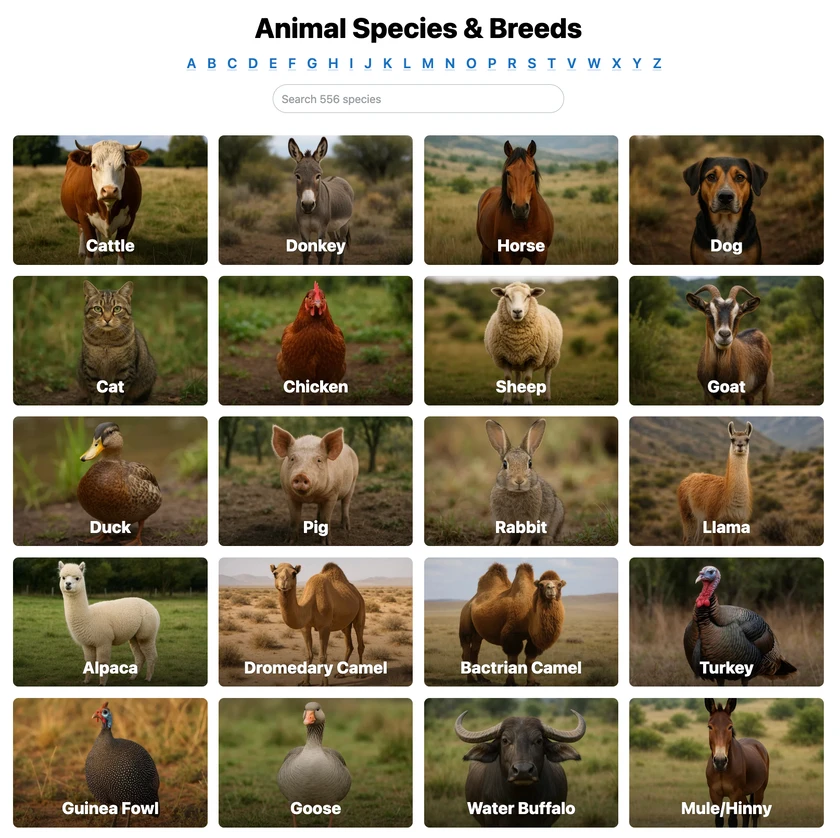 All Species & Breeds
All Species & Breeds
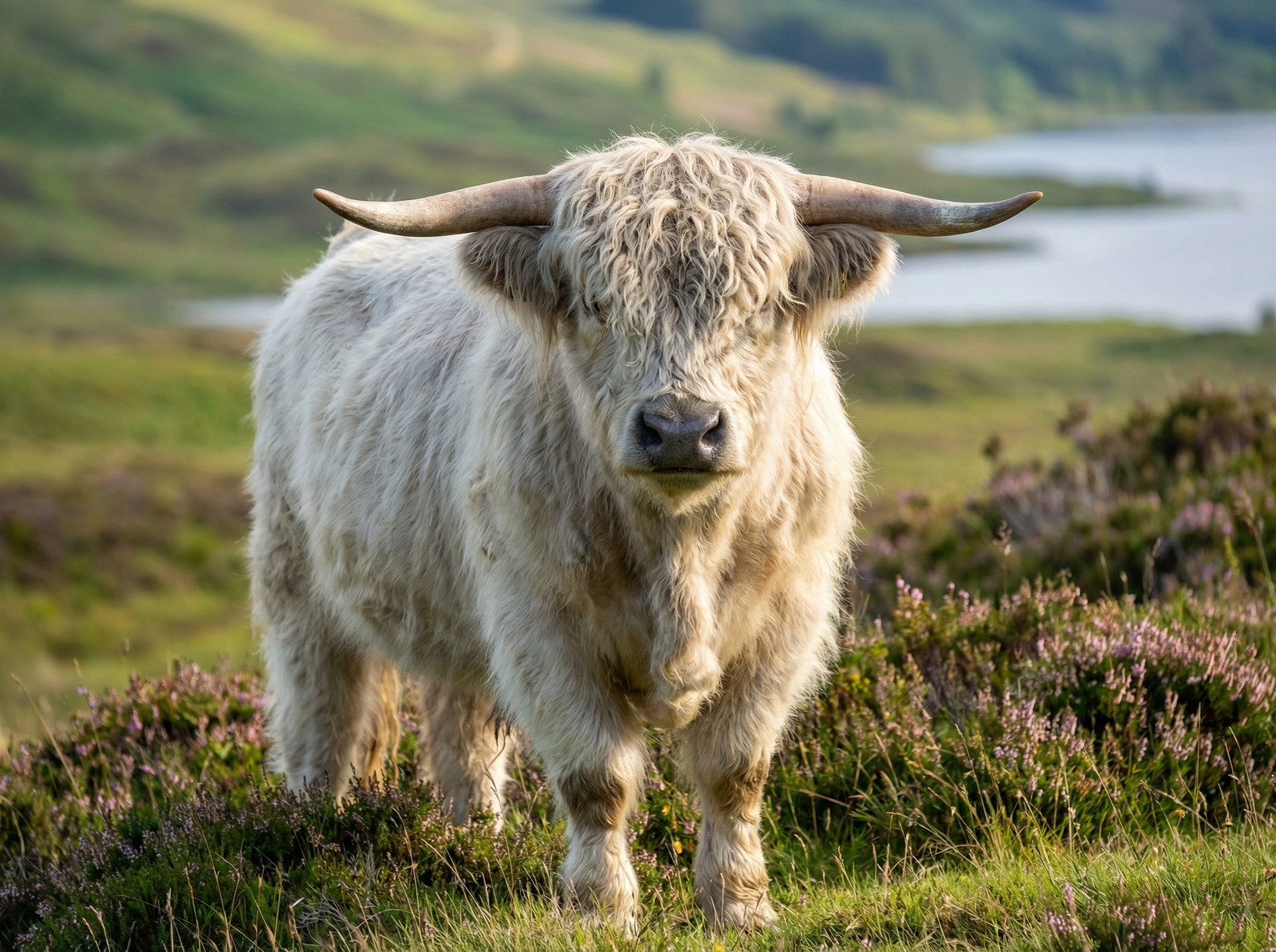 Highland Cattle
Highland Cattle
 Miniature Donkeys
Miniature Donkeys
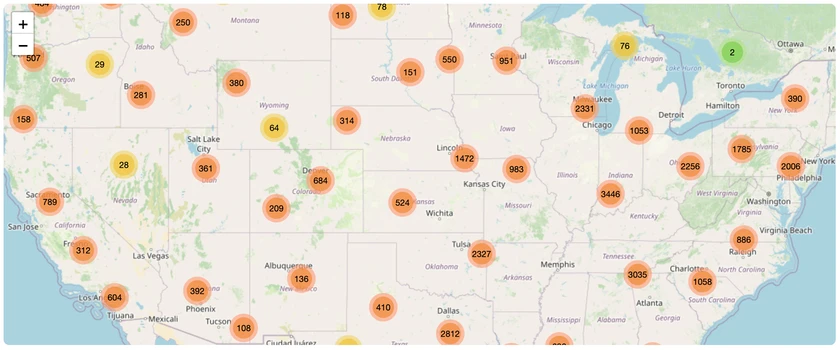 All Species Directory
All Species Directory
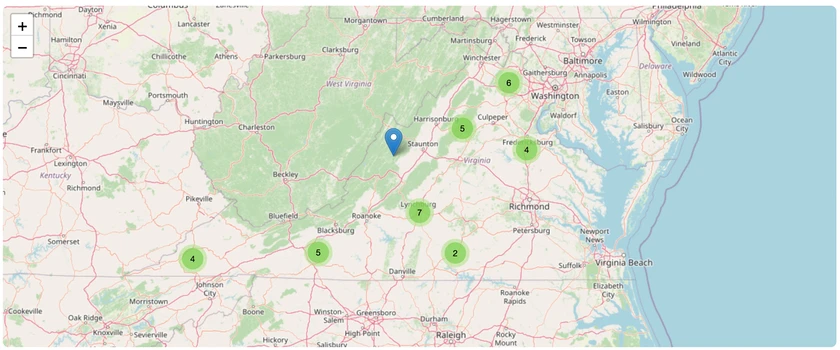 Highland Cattle in Virginia
Highland Cattle in Virginia
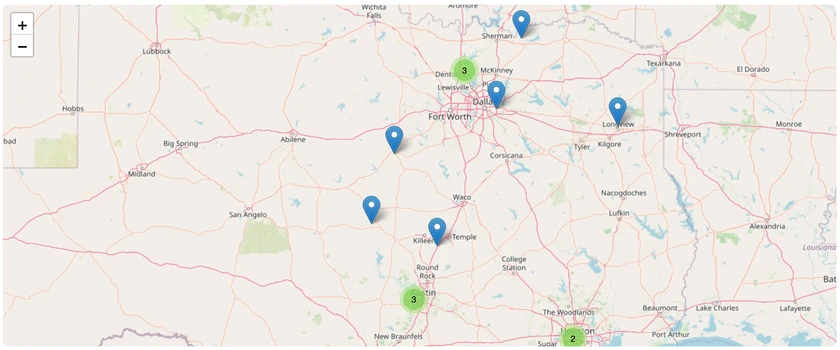 Miniature Donkeys in Texas
Miniature Donkeys in Texas
